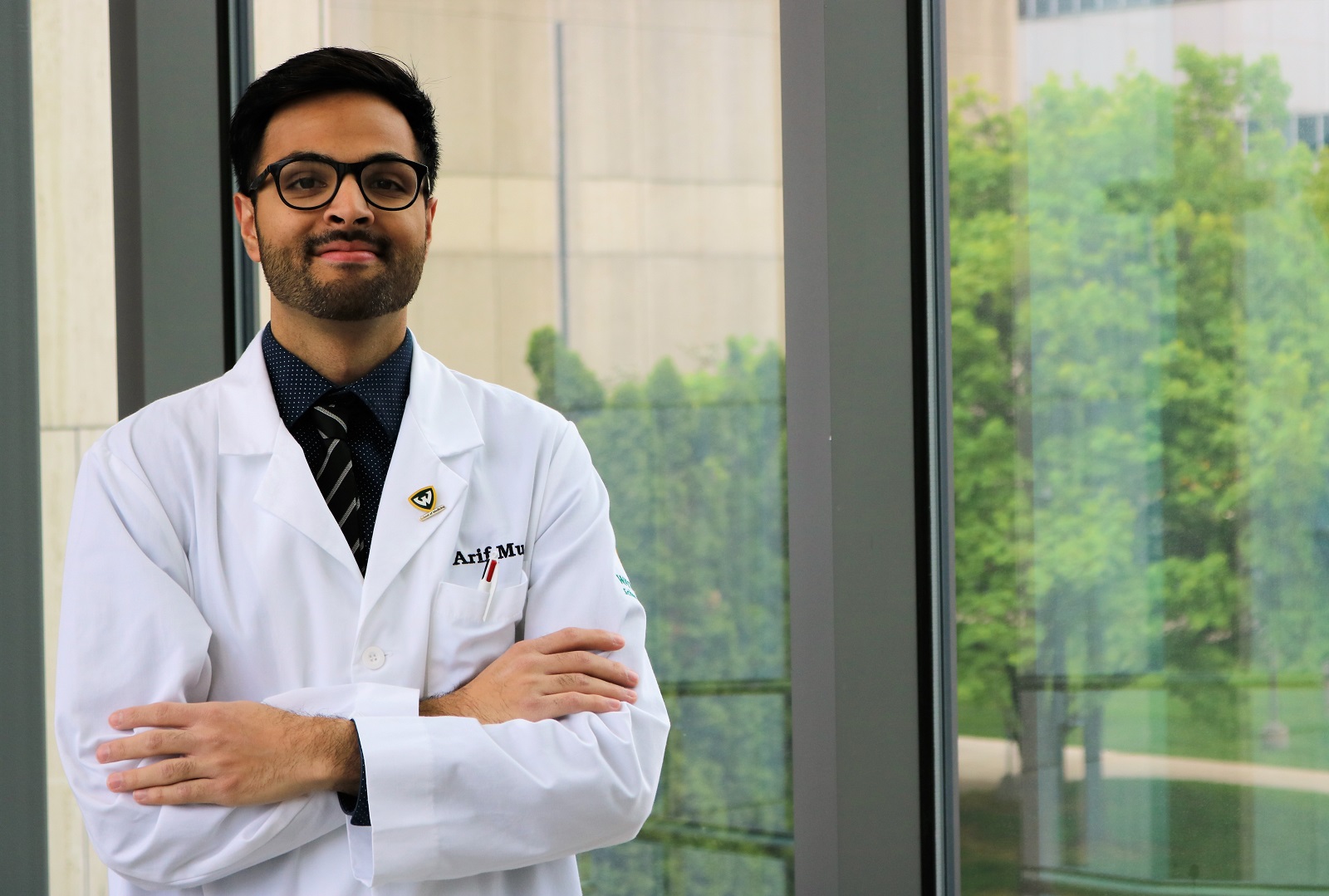
Arif Musa, a third-year medical student at the Wayne State University School of Medicine whose prolific research studies continue to earn attention, has published his flagship project on depression and stigma.
“Depression Severity and Depression Stigma Among Students: A Survey of Universities in Five Countries,” is included in this month’s issue of the journal of Nervous and Mental Disease. It is one of the first to compare depression and stigma in students within the United States, Egypt, United Arab Emirates, Czech Republic and Taiwan.
Musa proposed the study as a graduate student in the Global Medicine program at the University of Southern California’s Keck School of Medicine, where he was a mental health advocate and president of the student organization Free Minds United.
He noted the rapidly rising global prevalence of depression in university students and the identification of social stigma as a major barrier to receiving treatment.
Although most of the 1,287 students who responded to Musa’s questionnaire held more stigmatized beliefs about the public’s view of depression compared to their own, students in the United Arab Emirates held the most stigmatized views about depression. In Egypt, students exhibited the most stigmatized views about public perception compared to other nations.
“These findings suggest that efforts to reduce stigma need to address the particular stigma in each country. Moreover, American and Emirati students had the highest levels of depression, suggesting that the burden of depression varies significantly by country. In the study population, 30.7% screened positive for a depressive disorder. Ultimately, this study lays groundwork for future interventions to address depression and the stigma surrounding depression in both Arab and non-Arab countries across the globe,” he added.
The WSU School of Medicine has a dedicated counselor for each class of medical students. The counselor is available to discuss anxiety, stress and any other concerns.
“I am thankful for the administration at Wayne State University School of Medicine that is very responsive to concerns raised by students throughout the year,” Musa said. “Understanding how social stigma varies in different countries is critical to effectively address this barrier.”
At WSU, there are also many opportunities for students to de-stress, with some of the best led by fellow medical students, from virtual art classes to a newly-established Medicine in Motion student organization led by third-year medical student Emily Lau and second-year medical student Erika Polanco. The group hosts various athletic events to support student wellness and charitable events. Students like third-year Julie Fynke also lead the Health and Wellness Taskforce at the School of Medicine, which hosts programming throughout the year, such as “Med2Med,” a safe space for students to discuss their daily lives, in addition to pet therapy sessions, weekly meditations and more.
“By using a standardized measure of stigma, we could directly compare the stigma barrier in university settings in different countries, as rates of global depression continue to rise,” Musa said.
Broadly, stigma can be subdivided into personal and perceived beliefs, he said. Personal stigma constitutes the beliefs that a person has about mental health and mental illness. Perceived stigma refers to what a person believes others believe about mental illness.
“But the stigma associated with diseases such as anxiety or depression differs from that associated with psychopathologies such as schizophrenia or postpartum depression. In general, personal stigma tends to be lower than perceived stigma in the public; in other words, people tend to hold highly stigmatized beliefs about what they think others believe about mental illness,” he said.
A preliminary report of the study received Honorable Mention for the Student Research Award at the 2018 Association for Psychological Science annual meeting.
The WSU School of Medicine’s Office of Medical Student Research and Innovation was established in 2017. Since then, Musa has taken advantage of several opportunities for funding and support. He received the Wayne State University Medical Student Travel Award in 2018, the Wayne State University Department of Emergency Medicine John Skjaerlund M.D., Endowed Fellowship in 2019 and the Wayne State University Medical Student Research Fellowship in 2020.
“I am thankful to all faculty and fellow students for their tireless efforts in supporting my research. Without them, none of this would be possible,” he said. “What separates the WSU School of Medicine from other institutions is the many opportunities for faculty mentorship, research support, and equipment or other services and the extensive research partnerships with the nearby John Dingell VA Hospital, DMC hospitals, Henry Ford Health System and Beaumont Health. In my opinion, Wayne State University is the premier institution in the state of Michigan to support students interested in urban research and service endeavors.”